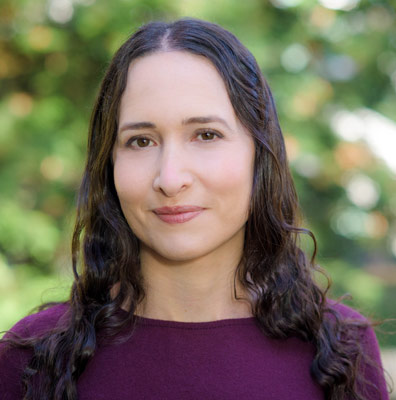Mattress Clarity is committed to providing our readers with accurate, unbiased, and up-to-date information about sleep.
As part of those efforts, we draw on the Mattress Clarity Expert Network — a group of experienced professionals in and around the field of sleep health who guide us in providing high-quality sleep education content. These experts ensure that the content we publish is accurate and share their knowledgeable perspectives about sleep health news. When an expert contributes to any piece of our content, we cite them by name and title and include a link to their profile.
We recently spoke with one of our experts, clinical psychologist Dr. Omrit Silberstein, PsyD, to learn more about her work and how psychology and sleep health are inextricably linked.
Mattress Clarity (MC): How and why did you decide to become a clinical psychologist?
Omrit Silberstein (OS): Psychology is a fascinating field. It covers so many aspects of the human experience. I loved studying psychology in college and wanted to have a meaningful career in which I could apply this rich knowledge to improve lives, while continuing to learn new things on a regular basis.
MC: When did you start to take an interest in sleep?
OS: I have always been curious about sleep and dreams. I wanted to know what happens once we fall asleep. Isn’t it interesting that all of us, humans and all other animals, pause our busy lives so we could do “nothing” for a long stretch of time? What produces dreams, and do they serve a purpose? What gets in the way of good sleep? And what explains those peculiar behaviors that occur sometimes during sleep, such as solving a problem or sleep-walking?
During grad school, I realized I could specialize in Behavioral Sleep Medicine and was looking for training opportunities. Fortunately, during my clinical internship a wonderful supervisor taught me how to do CBT-I [Cognitive Behavioral Therapy for Insomnia], and I started treating veterans with chronic insomnia. That was the first step of my training in sleep psychology.
MC: How does the issue of sleep inform the work you do with psychotherapy clients?
OS: Many people struggle with sleep and don’t realize it’s a treatable problem. Sleep is such a huge part of our lives and is impacted easily by stress, health, anxiety, depression, and other issues. At the same time, sleep may also impact our ability to cope with these issues. Therefore, I always ask about sleep when meeting a new client, and we address it if needed.
MC: What are your top three tips for anyone looking to improve their sleep?
OS: First, make sure the environment is conducive to sleep: the bedroom should be comfortable, dark, and quiet.
Second, go to bed at the same time every day and wake up at the same time every morning.
And third, don’t bring any electronic devices (computers, phones, tablets, etc.) to your bedroom.
Interested in joining Mattress Clarity’s Expert Network? If you’re a sleep or medical expert who wants to share your expertise with our readers, please contact our Editorial Controller, Laura Newcomer, at laura (at) mattressclarity (dot) com.

